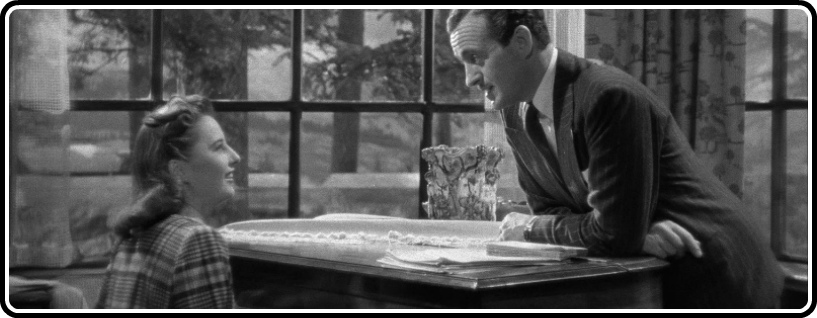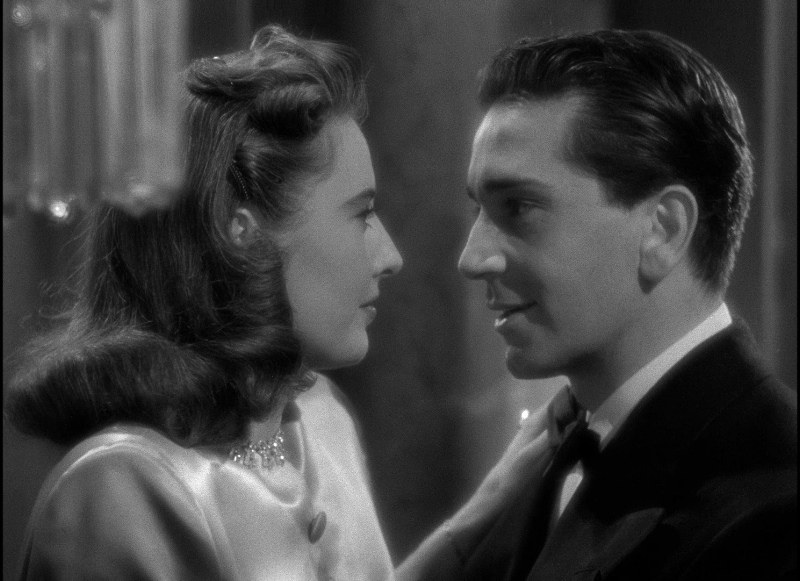
As we cinephiles rush to canonize the bulk of films receiving new DVD and Blu-ray releases, it can be something of a relief to come across a totally ordinary film getting similar treatment. The Other Love is not a overly flawed picture, and it fulfills its modest ambitions with a touch of class and flair. There’s little exceptional about it, but why need there be? Barbara Stanwyck plays the lead role, a renowned concert pianist sent to a sanatorium for an unspecified condition – something of the “mountain air will do you good” variety. She quickly becomes attracted to her doctor, played by David Niven, but there’s something kind of creepy about him. And about the place. Stanwyck hears weird noises in the night. People keep disappearing, but the staff is tight-lipped as to where they went.
But there’s ultimately nothing creepy about the doctor. The weird noises are just the sounds of nature. People disappear because they die, and the staff won’t talk because they don’t want to bring up death around sick people. It’s a thoroughly decent film filled with thoroughly decent people who genuinely want what’s best for one another, even when their expression of that is difficult to understand. Feeling trapped inside the hospital, Stanwyck spends a night in a nearby village, where she meets an auto racer (Richard Conte) who begs her to run away with him. She agrees, but escapes back to her room to gather some things, telling the racer only that she’s going to powder her nose. She’s probably gone for hours. Still, she finds him at the closing bar where they parted. He acknowledges his frustration without dwelling on it, taking her word for what really matters.

Who wouldn’t take Stanwyck’s word? For one of her most famous roles, Double Indemnity, the entire film rests on her ability to sell something we know is crooked, to follow her down a path that can only end badly. What’s a little emotional uncertainty compared to that? Stanwyck doesn’t play the same level of extreme confidence here, but she needn’t. Her character is an artist, shut away in a house and unable to practice her art, with little evidence that the many restrictions on her life are doing her any good at all. Movies show repression better than any other art form, provided an actor able to let little bits of herself escape the corners of her presentation. And Stanwyck can do anything.
The new Blu-ray transfer from Olive Films looks a little on the rough side at first, even by Olive standards, but it mostly settles into a fairly pleasing image. The damage flares up again around where the reel changes would be (and this is where I really start to wonder if I’ve seen too many movies), which is common for a 35mm print, but may throw off those accustomed to cleanliness in their home video. Grain is nice and varied, providing good texture and depth. Contrast is superb. Clarity suffers a little from shot to shot, but is hardly detrimental. Audio is consistent and suitable. The disc offers no supplemental features. (Screencaps come courtesy of DVD Beaver)



